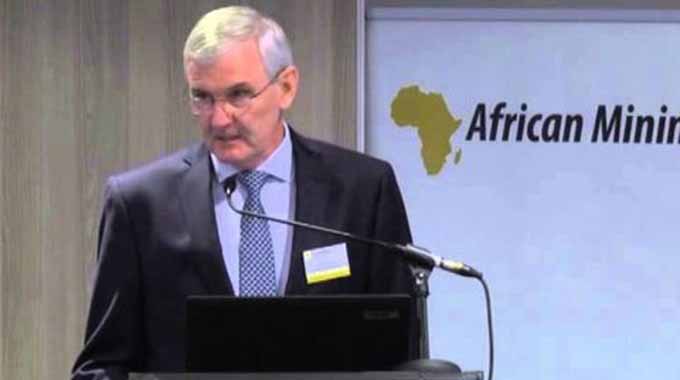Editorial Comment: Property trust funds could solve a lot of problems

The major development programmes being implemented by the Government will drive economic growth, directly and indirectly, and offer increasing opportunities to properly organised and well-managed private companies.
The latest analysis of how infrastructure development, the major housing programmes and general economic growth can benefit everyone comes from First Mutual Wealth.
General economic growth obviously benefits everyone, especially when there is a strong emphasis on bringing those at the bottom of the ladder up the rungs and into the formal economy.
Ensuring both a richer and more equal society, and Zimbabwe still suffers from the inherited grossly unequal development of the colonial era although the people at the top have changed, are both essential components of implementing our Vision 2030 of upper middle income status.
Neither growth nor equality, by themselves, is adequate. Growth that concentrates new wealth in the hands of a few people works for a while, but then splutters out, since markets remain limited and the growth becomes impossible to sustain.
There are limits to what even a wealthy person can consume and investment opportunities are small. It is no use, for example, building office blocks that remain empty or building houses that no one can afford to live in or building factories producing goods that no one can buy.
Equality, by itself, while it reduces the social pressures, simply spreads poverty. Even if Zimbabwe’s entire gross national product was spread more evenly, we would be far from upper middle income status and would be marooned in a lower-income country.
So we need both and the Government has in its national development strategy noticed that you get far more bang for your buck, especially at our stage of development, if you convert those subsisting at the base into producers and wealth creators.
For a start you create the markets that are needed to sustain the growth. If millions, rather than thousands, can afford to buy a product, then it makes sense to build the factories that make it.
Just think how our textile industry could grow if small-scale cotton farmers can afford to buy the clothes made from their cotton.
If millions, rather than thousands, can afford to buy a flat or house, or rent one, then the entire construction industry from investors, brick and cement makers, and small and large contractors can flourish.
And let us not forget all the knock-on effects. People who make furniture, stoves and fridges and even curtains suddenly have larger markets, and that means we can start making more of this ourselves, instead of importing.
Of course growth requires a lot of infrastructure, the things Governments can be really good at. We need more roads and better roads, more dams so farmers can irrigate and towns and cities can grow, more power stations since doubling production doubles energy demand.
That is all included in the Government’s capital budgets, which are now meaningful since the fiscal reforms of the Second Republic put capital spending into near equality with staff costs.
But First Mutual also noted that investment opportunities grow, and if we sort things out a lot better, how a lot more people can participate in that investment, providing both the capital required and sharing in the returns of investment.
One major contribution would be real-estate investment trusts floated on stock exchanges. At the moment real estate investment tends to be sharply divided into two categories. There are the major institutional investors, like First Mutual, trying to find suitable assets to back pension and life-insurance funds.
And there are a growing number of people scraping their few dollars to build or buy their own home. There is not much in the middle.
At the same time inflation and other inherent instability makes saving difficult. We agree that the present reforms are sorting out both, but the dreadful experience of so many will cloud decision making and, to be blunt, keeping savings in the form of foreign currency in a trunk neither allows that money to grow and can be wiped out by five robbers with a gun.
Ideally, people wanting to buy their own flat or house one day, or saving for their own business needs, need a secure place to put their money, and then need to be able to get that money out when they are ready, which requires a degree of liquidity.
Stock exchanges offer both. And on a stock exchange you can start with a small sum and add to it.
At the moment there are industrial and some mining shares, although most of our mines are owned by major mining investment houses.
The property trusts could fill a vital need, mobilising vital capital gathered from large numbers of small investors, and spreading the risks and so minimising the chance that you are suddenly wiped out by a mistake.
The major Government housing programme, and the commercial development that goes with this, clearly needs more capital than even the best balanced budget can generate, and already there are a number of public-private partnerships putting in services and buying cement.
But some of the private investors could easily be these trusts, and careful linkages could be set up to allow those whose savings are in the trusts to go to the top of the lists when they have accumulated enough to convert paper to bricks.
Building societies used to do this, and now we need something that does the same, avoids the horror of the corrupt co-operatives, and works in modern Zimbabwe.
Those with memories of the co-operatives, which were supposed to help poor people accumulate savings to buy a home, but instead enriched land barons, should also reflect that a stock exchange company needs to have financial records that gleam in the dark they are so clean, with plenty of information given shareholders, including just how much the directors earn in total.
Others wanting to invest in these funds would be those who already own their home, whose children are now earning a living and while in their most productive years would like to create a nice secure investment with regular dividends to support a graceful old age.
Property answers those needs, but few can afford two flats or houses, one to live in and one to provide the food and there are risks with all eggs in one basket, while a real estate investment trust operating under stock exchange rules can answer the needs.
The idea is good. It would need to be carefully worked out, and steps taken to ensure that dud investments were not unloaded into a trust, but we can do that without much trouble. The talk needs to be converted to action.










Comments